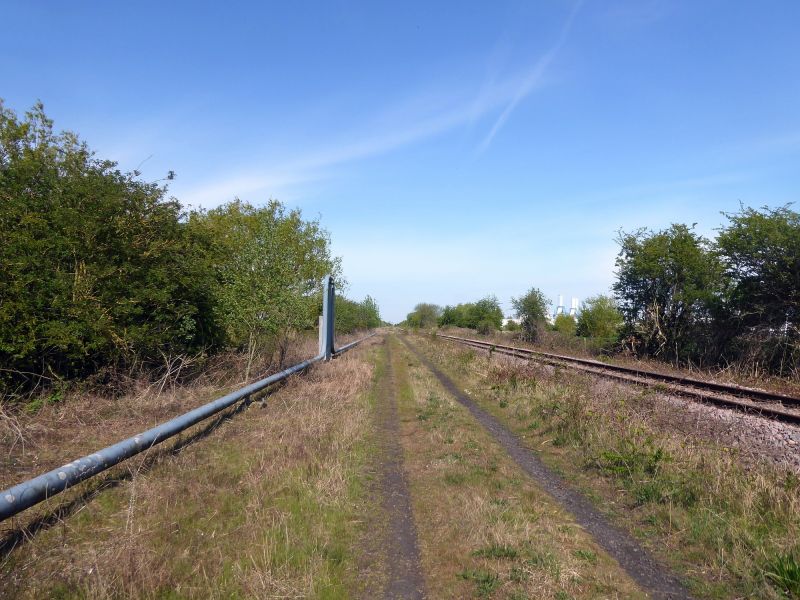Expert Picks for Gas Line Service Products You Can Trust
Browse our curated selection of proven tools and accessories that support safe and effective gas line work.
 Maintaining and servicing gas lines is a critical task for both professional technicians and homeowners involved in gas line installation or repair. Proper tools and equipment ensure safety, efficiency, and compliance with local codes. Gas line service products encompass a wide range of items designed to facilitate tasks such as leak detection, pipe fitting, pressure testing, and line repair. Whether working on residential gas lines or larger commercial systems, having the right equipment can make a significant difference in the quality and safety of the work.
Maintaining and servicing gas lines is a critical task for both professional technicians and homeowners involved in gas line installation or repair. Proper tools and equipment ensure safety, efficiency, and compliance with local codes. Gas line service products encompass a wide range of items designed to facilitate tasks such as leak detection, pipe fitting, pressure testing, and line repair. Whether working on residential gas lines or larger commercial systems, having the right equipment can make a significant difference in the quality and safety of the work.
Top Overall Option
Multi-Function Gas Line Service Kit
A versatile gas line service kit that includes pressure gauges, leak detection solutions, fittings, and tools designed for various tasks. It offers a comprehensive set for professionals and serious DIY enthusiasts seeking a reliable and organized approach to gas line maintenance and repair.
Types of Products For Gas Line Service
Gas Leak Detectors
Devices designed to identify the presence of gas leaks quickly and accurately, enhancing safety during inspection and repair.
Pressure Gauges
Instruments used to measure the pressure within gas lines, ensuring proper system operation and safety standards.
Pipe Fittings and Connectors
Various fittings such as elbows, couplings, and adapters to connect or repair sections of gas piping.
Gas Line Snakes and Augers
Tools used to clear obstructions and clean out clogged or damaged sections of gas piping.
Leak Testing Solutions
Chemical or electronic solutions used to detect leaks in gas lines during installation or maintenance.
Thread Sealants and Tapes
Materials used to ensure airtight seals on threaded pipe connections, preventing leaks.
Pipe Cutters
Tools for cleanly cutting gas piping to the desired length or for removal purposes.
Gas Line Repair Clamps
Clamps designed to temporarily or permanently repair leaks or damaged sections of gas lines.
Valve Turners and Wrenches
Specialized tools for opening, closing, or adjusting gas valves safely and efficiently.
Vacuum Pumps
Devices used to remove air and moisture from gas lines before sealing or testing.
Gas Line Cleaners
Tools or solutions for cleaning out debris or buildup inside gas pipes to maintain proper flow.
Portable Gas Analyzers
Devices that measure gas concentrations to ensure safety levels and detect leaks.
Popular Choices
Highly sensitive electronic devices used to detect even small gas leaks quickly.
Reliable gauges for measuring gas line pressure with easy-to-read dials.
Connectors that allow for easier installation and maintenance in tight spaces.
Foaming sprays that help visually identify leaks in gas connections.
Handheld tools suitable for quick and clean pipe cutting tasks in the field.
Widely used for creating airtight seals on threaded pipe connections.
Small, flexible cameras used to visually inspect inside pipes for damage or obstructions.
Tools used to perform pressure testing on gas lines to verify integrity before use.
Temporary or permanent clamps used to seal leaks or repair damaged piping sections.
Versatile tools for tightening or loosening fittings and valves of various sizes.
Complete kits including pumps and accessories for preparing gas lines for sealing or testing.
Chemical solutions that help detect leaks through visual or chemical reactions.
From specialized connectors and fittings to pressure gauges and leak detection devices, the array of products available caters to various levels of expertise and project scope. Quality tools are essential for identifying issues early, ensuring proper installation, and performing routine maintenance. Investing in reliable, durable equipment can help prevent hazards associated with gas leaks or improper fittings, ultimately promoting safety and operational efficiency.
When selecting gas line service products, it is important to consider compatibility with the type of gas system in use, ease of use, and compliance with industry standards. Proper training and understanding of each tool's purpose are equally important to ensure safe handling. The right products can streamline workflows, reduce downtime, and enhance overall safety during gas line servicing activities.
In La Quinta, California, where residential and commercial properties often require reliable gas service maintenance, having access to a comprehensive selection of gas line tools is beneficial. Whether for routine inspections, emergency repairs, or new installations, choosing the appropriate equipment is key to achieving successful outcomes. Prioritizing quality and suitability will help ensure that gas line servicing is performed safely and effectively.
Key Buying Considerations
- Compatibility with the type of gas system in use, such as natural gas or propane.
- Ease of use and ergonomic design for safety and efficiency during operation.
- Material durability, especially for tools exposed to harsh environments or frequent use.
- Compliance with local and industry safety standards and certifications.
- Size and portability of tools for ease of transport and storage.
- Accuracy and sensitivity of leak detection devices for reliable results.
- Ability to handle pressure ranges typical for your specific gas system.
- Availability of replacement parts and accessories for ongoing maintenance.
- Brand reputation and reviews from other professionals or users.
- Cost-effectiveness considering the quality and features offered.
- Compatibility with existing tools and equipment to streamline workflows.
- Warranty or guarantee policies for peace of mind and support.
- Training or instructional resources available for proper use.
- Environmental considerations, such as non-toxic leak detection solutions.
- Versatility of tools to handle multiple tasks within gas line servicing.
